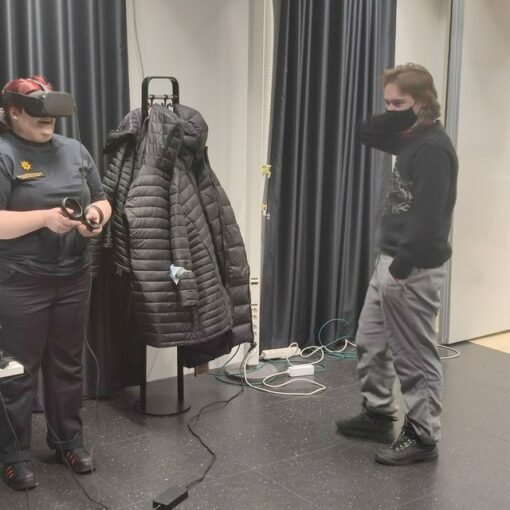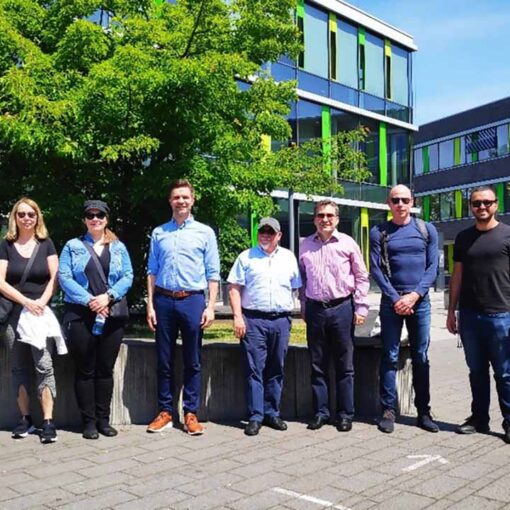Even before ChatGPT became available to the public, OpenAI was looking to field test their technology with different partners, including a partner in the educational sector, Khan Academy (Khan 2024: xxii). Khan (2024) strongly advocates for the wide use of AI in education. While he has good points, he is also missing pieces of the puzzle.
Pathfinder (2024) is a project at LAB in collaboration with partners around Europe. One of the goals of the project is to provide materials and tools for both teachers and students regarding the usage of AI. However, not all needs or contexts are the same, so the same materials or tools might not work for everyone equally.
AI as part of a global classroom
The idea of a global classroom enabled by an AI is compelling. While actual teachers are preferable and if the choice is between a human and an AI, the decision should be easy. However, this is not the choice for many. There is a global shortage of teachers which is only growing worse (UN 2024). In such a situation using AI tools to mitigate the problem is understandable if they are readily available.
This will not remove the problems around lack of access to education due to, for example, societal misogyny, child labor or lack of Internet access, but it would still be possible to provide opportunities for hundreds of millions of children.

AIs can provide personalized education, but when Khan (2024) considers this personalization, he is looking at personalization from a very specific point of view: adapting to the current competence of the learner and filling potential gaps in learning. This is not the only personalization we need.
Diversity is not only an important value, its valuable
Diversity among individuals and cultures is a strength of humankind. Diversity in the workplace is something that is being advocated for by both academics (e.g. Ozgen et al. 2017; Patrick et al. 2012) and experts (Lorenzo et al. 2018; Hunt et al. 2018). Diverse organizations are more robust, adapt better to change and are more innovative.
AI does not support this diversity. Its understanding of cultures is limited when the amount of data used in training is similarly limited. It is easy to find examples of situations where an AI makes wild claims around a topic regarding such a community. As an example, ChatGPT (2024a) has trouble identifying which Finnish names are seen as non-binary, even going so far as to list the word for “brother” as one of the options. This is not necessarily a problem only regarding societies. Similar problems can occur regarding subcultures and minorities as well.
There are also limitations regarding language. As of this writing ChatGPT (2024b) knows 25 languages, which leaves 6975 languages outside of its purview according to ChatGPT itself, but this is not true as the number of languages is higher at 7162 according to Ethnologue (2022). ChatGPT doesn’t know any languages originating from Africa, for example, one of the key areas where it would be most useful for educational purposes.
Decisions should be educated
These kinds of problems are also not the extent of it. Even though mathematics is in itself neutral, how we understand mathematics can have a bias (Powell & Frankenstein 1997) and how we teach mathematics can embed values into it that are hard to identify and will often remain uncriticized (Bishop 1991).
In a way, it could be argued that wide usage of AI in education globally would just be another form of colonization as Western values and points of view have been embedded into the tools. However, it should be understood that this is also potentially an elitist approach. The decision on whether the Global South should have access to quality education should not be ours, but for the sake of diversity in the future, those decisions should be educated, and it would be preferable to find humans to do the teaching instead.
Author
Aki Vainio works as a senior lecturer of IT at LAB and takes part in various RDI projects in expert roles. As a straight white highly educated cis man he does find discussing topics regarding any kind minorities a bit awkward.

References
Bishop, A. J. 1991. Mathematical Values in the Teaching Process. In Bishop A.J., Mellin-Olsen, S & van Dormolen, J. (eds.) Mathematical Knowledge: Its Growth Through Teaching. Dordrecht, Netherlands: Kluwer Academic Publishers, 195–214.
ChatGPT. 2024a. Ei-binääriset nimet Suomessa. OpenAI. Cited 4 Nov 2024. Available at https://chatgpt.com/share/6728b227-9534-8009-bb38-6a3ada2ddd5f
ChatGPT. 2024b. Language Knowledge Summary. OpenAI. Cited 4 Nov 2024. Available at https://chatgpt.com/share/6728cabf-85d0-8009-b0f4-94b847bd9996
Ethnologue. 2022. How many languages are there in the world?. Ethnologue. Cited 4 Nov 2024. Available at https://www.ethnologue.com/insights/how-many-languages/
Hunt, D.V., Yee, L., Prince, S. & Dixon-Fyle, S. 2018. Delivering through diversity. McKinsey & Company. Cited 4 Nov 2024. Available at https://www.mckinsey.com/capabilities/people-and-organizational-performance/our-insights/delivering-through-diversity
Khan, S. 2024. Brave New Words – How AI Will Revolutionize Education (and Why That’s a Good Thing). London, United Kingdom: Allen Lane.
Lorenzo, R., Voigt, N., Tsusaka, M. Krentz, M. & Abouzahr, K. 2018. How Diverse Leadership Teams Boost Innovation. Boston Consulting Group. Cited 4 Nov 2024. Available at https://www.bcg.com/publications/2018/how-diverse-leadership-teams-boost-innovation
Ozgen, C., Nijkamp, P. & Poot, J. 2017. The elusive effects of workplace diversity on innovation. Papers in Regional Science. Vol 96, supplement 1, S29-S50. Cited 4 Nov 2024. Available at https://doi.org/10.1111/pirs.12176
Patrick, H. A., & Kumar, V. R. 2012. Managing Workplace Diversity: Issues and Challenges. Sage Open, 2(2). Cited 31 Oct 2024. Available at https://doi.org/10.1177/2158244012444615
Pathfinder. 2024. Welcome to the Erasmus+ Pathfinder Project. Netlify. Cited 4 Nov 2024. Available at https://erasmus-pathfinder.netlify.app/
Powell, A.B. & Frankenstein, M. 1997. Ethnomathematics: Challenging Eurocentrism in Mathematics Education. Albany, NY, USA: State University of New York Press.
sasint. 2016. Book, Asia, children image. PixaBby. Cited 4 Nov 2024. Available at https://pixabay.com/photos/book-asia-children-boys-education-1822474/
UN News. 2024. UN issues global alert over teacher shortage. United Nations. Cited 4 Nov 2024. Available at https://news.un.org/en/story/2024/02/1147067




